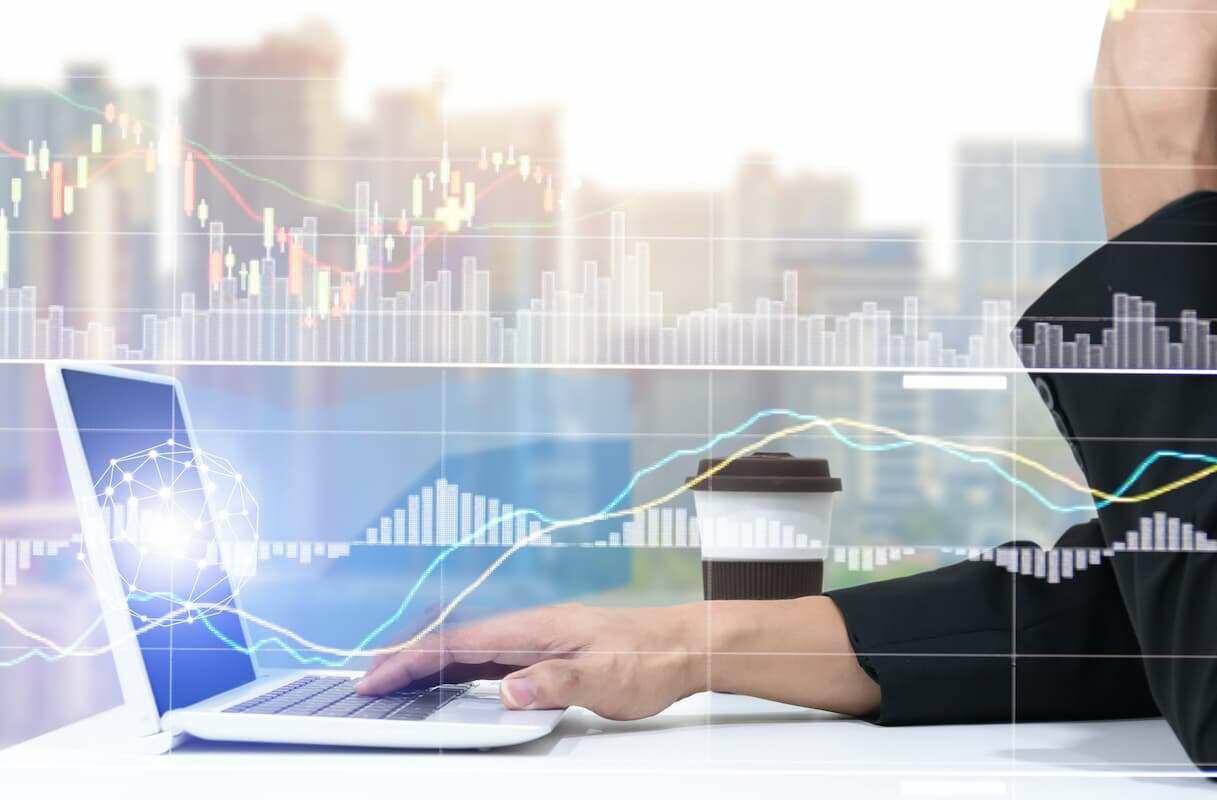Content
- Why Does Your Project Need the Best Software Architecture?
- Who can benefit from inventory control software?
- Omnichannel Retail Platforms
- Stratus Enterprise
- Point of sale software
- How does the retail management system meet the growing demand for business process automation in the retail industry?
- FAQs of Retail Software
The list of IT companies is graded through discreet research and analysis on various industry specific metrics to help the businesses in finding the reliable technical partner. The hardware and software are highly interdependent and hence while selecting the software, the hardware requirements should also be considered. It can happen that the retail software that a retailer selects will be compatible only with specific hardware. Apart from the computer system, a wide variety of peripheral components like printers, signature pads and credit card readers and retail software must also be compatible with all these peripheral components.

• The POS system reduces the errors as employees do not have to double-check every customer’s order manually. • Retailers get real-time information about full or partial refunds, payments and transaction statuses. NetSuite is a good cloud ERP solution for small and medium business. Initial testing was time-consuming, but end result was a value add to the business. The financial resource management module handles money flows and commercial activities. This is the most fundamental yet sophisticated must-have tool, and it is absolutely free.
Why Does Your Project Need the Best Software Architecture?
For making informed business decisions, having access to the relevant data when you need it is critical, which is why retail ERP software is such an important part of any successful company. This is because it gives you real-time data from all areas of your company. It synchronizes all channels, as well as business operations like accounting software, to create a single picture of data on which you can confidently plan and strategize. In a fast-paced retail environment and for an Omni channel customer experience, this is especially critical when handling products, stock, sales, promotions, customers, and orders across different channels. Order fulfillment software automates various aspects of a retail business, such as packing, shipping, picking inventory, inventory management, tracking processes, and picking lists.
Selecting a right software development company is the key to ensure that you get a robust retail software for your business. To stay competitive in the digital age, retail establishments must provide excellent consumer experiences. It’s vital to keep track of all store activity and automate a number of tedious processes. They want retail software that provides employees with the tools they need to run their stores successfully and complete tasks on time. Developing retail software is the greatest solution for businesses of all sizes.
For using this ERP or to get habitual to it, it’s users need to have some basic understanding of an ERP. Analytics and reporting allow companies to measure, manage, and track the success of campaigns. It provides an assessment of response rates, revenues, and https://globalcloudteam.com/ returns on investment. A loyalty program gives the ability not only to attract new customers but also to stimulate customers to come back for repeat purchases. Real-time performance data can be used to optimize trading, inventory allocation, and staffing.
Who can benefit from inventory control software?
It saves retailers from losing several dollars in revenues if customers leave their store empty-handed due to poor service. Retailers can ensure a faster checkout during billing with the retail POS system. The modern retail management software is compatible with multiple modes of payments in multiple currency forms. Retail management consists of various elements that shape the retail store’s activities to provide operational excellence to the retail business. Retailers have to manage all elements such as visual merchandising, retail marketing and promotion, customer service, Point of Purchase , and Point of Sales , etc. to achieve success in the retail business. « Retail Pro is a comprehensive POS and speciality retail management software platform with powerful POS, inventory for both in-store and online retail. »
Retail accounting for inventory control, transaction monitoring, and pricing. Transportation management to track deliveries and also chain store management. Retail billing management to optimize store performance and increase productivity.
Logistics is the heart of any retail business and keeping it operational anytime is of the utmost priority. To ensure uninterrupted logistics workflow and delivery of goods, use a quality logistics management software in your retail business. Look out for tools that can integrate with third-party logistics vendors via APIs. Beacons transmit Bluetooth signals to nearby smartphones via battery-operated wireless devices. Retailers use beacon technology to transmit messages to shoppers perusing in a particular aisle or shelf inside the store.
Had this been done manually, retail pos software would take up hours instead of minutes to make a transaction and billing. In computer-based retail pos software, there is a risk of exposing the PIN when customers want to pay their bills by credit card or any similar payment method. Retail management software helps to plan promotions, predict performance, and then analyze the results. This means that businesses can offer their customers discounts and promotions while being able to control the impact of those activities on the product’s profitability.
Interacts between multiple stores to create one master merchandise repository.Warehouse managementAutomates the tracking, locating and management of inventory within a warehouse. A new breed of tech-savvy consumers, disruptive technologies, high-engagement experiences, and consumer’s influence on the value chain are the trends shaping the retail industry’s future. The retail management software industry will have to meet the demands of the post-pandemic world and align itself with the future trends to provide industry-ready solutions. The cloud-based retail management software is popular with mega-retailers and retail chain owners who require high-speed real-time information, massive data storage capabilities, and high-end security. Hosted through a third-party cloud service provider, cloud-based retail management software is a SaaS based solution.
Omnichannel Retail Platforms
EMarketer projects that the total retail market will reach nearly $28 trillion by 2020. Begin by building a baseline understanding of what the market looks like in terms of common features, additional applications, prices, deployment models etc. Keep an eye out for industry terms or jargon that you’ll need to understand when working with vendors. Software provider websites are a good resource for this initial research.

The intelligent retail space management module of the RMS software uses AR and VR to enhance the store’s spatial effectiveness. With the reporting and analytics function of retail software solutions, retailers can get real-time custom reports of sales, suppliers, inventory, etc. This feature of retail management software organizes and classifies products based on their features, types, categories, sale process, price, weight, segment, color, size, expiry dates, season, etc. It also keeps records of each product’s manufacturing data, handling information, warranty conditions, etc. From a multi-store or franchisee model perspective, retail management software helps in monitoring and controlling the quality and alignment of business goals at every store equally.
Stratus Enterprise
First, the e-commerce boom led to the rise of online retail solutions. Retail is the sale of goods and services from people or organizations to the end-user. They purchase goods in enormous quantities and sell them to the consumer. Features like Barcode Scanning, Cloud Computing, and Sales Tracking are really helpful to streamline all the task for seamless service. Its mobile app is apt to manage every task with improved functionality and attain customer satisfaction. CRM solutions collect a lot of data and provide tools to segment that data based on market and target audiences.
- Merchandise managementEnables in-depth structure and organization of inventory management, often broken into assigned stock keeping units .
- When employees have access to the tools for making customer services better, they are happy.
- Retail store management software solutions are mostly used by brick-and-mortar shops, but can also be used in eCommerce successfully.
- One of the most important aspects of running a retail business is keeping track of inventory.
- • Retailers get real-time information about full or partial refunds, payments and transaction statuses.
- With ecommerce software you aren’t restricted by the work schedule of your employees or your physical location.
The businesses that use Omnichannel software need not worry about double entries or mismatch in inventories. • The pricing and discount management feature of ERP software allows retail software development retailers to reduce pricing errors, helping them improve their store’s productivity. In a cloud based POS system, the system has access to data stored on a cloud server.
Point of sale software
Email marketing collects email addresses at checkout to notify customers of upcoming sales or new products. Sales reporting and analytics allow you to capture and analyze vital data on product sales as well as revenue and ROI. This feature also allows you to determine which products need more marketing efforts so you can craft better sales-boosting strategies. Also, restaurant POS software has such distinct features as table layout and customer tracking and analytics features. Sales reports provide deep insights for making better business decisions.
How does the retail management system meet the growing demand for business process automation in the retail industry?
Incepted in 2003, Hidden Brains is an Offshore Software Development & IT Consulting Company offering innovative solutions for diverse industry verticals. We act as an invaluable catalyst for building a culture of innovation. Our breakthrough solutions have the capability to challenge the limits and give business a competitive edge. Custom sales to create custom line items and set the price to anything you like.
Find the best tool at GoodFirms’ list of best retail management software to aid your needs. With the help of this retail management system or online retail software, retailers can generate and use real-time reporting to be updated with business dynamics and make smart decisions. In the fast-paced world of modern retail industry, inventory management software can prove to be a real asset. The businesses can track products and sell them efficiently to their customers using inventory management software. In the age of just-in-time inventory management, a robust inventory control system can aid a retailer in keeping costs to minimum, improving the company’s top line. The features include retail inventory management which helps to manage different aspects of the retailer’s supply chain.
Retail software is used by all small, medium, and large enterprises. The main purposes of using the software are to regulate pricing, calculate taxes, inventory management, and manage POS, billing, and payroll. We have many branches and employees to update and fetch data from ERP and they collaborate without any problem. I think, it is a perfect ERP for the multi-store and large businesses in the retail industry. An omnichannel system allows customers to interact with a company in a way that feels natural to them.
Popular Retail Management Systems Comparisons
Retailers often go through a lot of hassles when it comes to managing the store. A point of sale comes across as a vital software solution for retailers unifying both online and offline sales. POS can be placed in the physical store to process credit card payments or a virtual sales touchpoint to make payments with mobile devices or desktop/laptops. The best example of an omnichannel platform for B2B and B2C businesses is SAP Commerce Cloud.
While preparing the budget of the retail software, the retailers must ensure that they do not buy it only based on price. Consider the return on investment that the retail software would provide to the business. A point of sale software facilitates transactions between the merchants and the customers and helps the merchants simplify critical day-to-day business operations. The restaurant POS systems are different from the retail POS systems. The restaurant POS does not close the orders immediately since it takes time to prepare a dish.

COMMENTAIRES